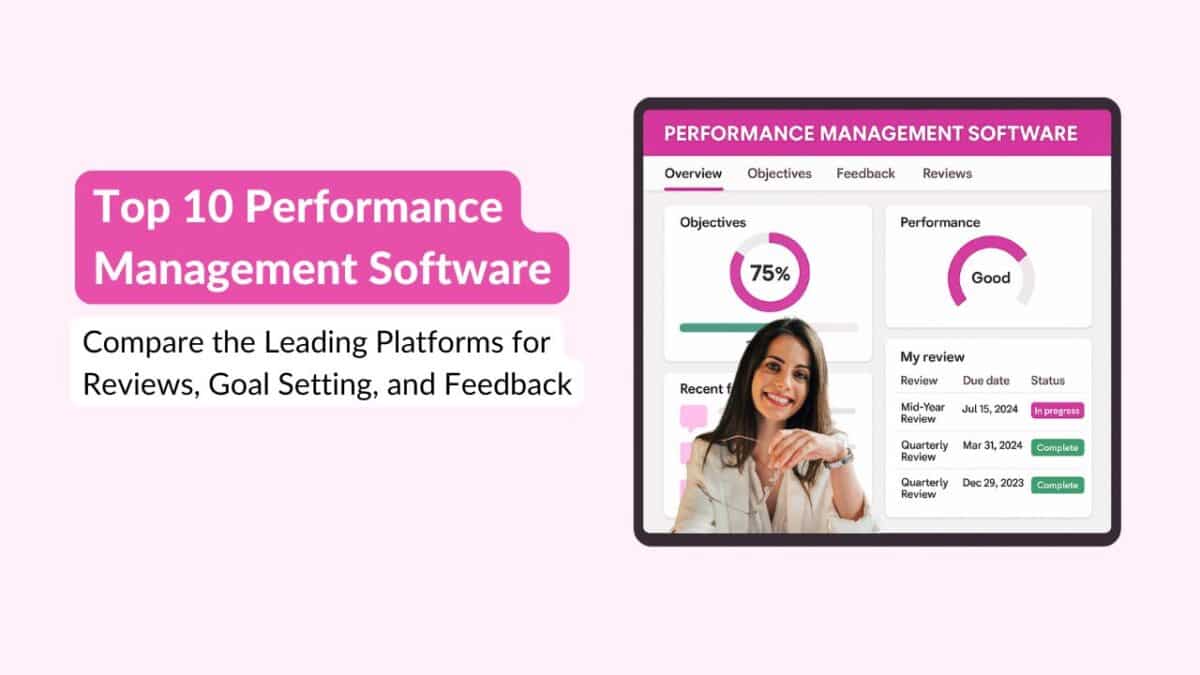Performance reviews are painful and time-consuming, but when done right, they can impact organizational growth and productivity in all the right ways.
Instead of dreading the upcoming review session, here are a few performance review tips for managers who are navigating performance reviews for the first time, or even for managers who have been around the block and still blanch at the thought of participating in performance reviews.
Prepare In Advance
A performance review is not just a one-day process, even though a meeting could take as little as a half-hour. However, in order for it to get over quickly, it requires you to be prepared way ahead. Let your direct report know well in advance as well. So that they too get to prepare themselves mentally for the review, instead of being shocked out of the blue. Also, prepare yourself for the review meeting and decide what are the key points you want to discuss with each of your employees. Look back upon their past work, the feedback you’ve shared with them (even better if you have kept a record of it), and try to gather feedback about them from other senior peers if it hasn’t already been shared.
Communicate Clearly
In the review process, it is important to be clear and precise about what you are trying to convey to employees. You can’t review their performance with just “Good Work/ Unsatisfactory Work” and be done with it. Neither should you use vague words that make it difficult for them to understand. It helps neither the employee nor the organization. Remember, the goal is to make your employees aware of the areas where they excel and the areas that need improvement. You do not have to go overboard with words, but neither do you have to be exceedingly spare. Make sure that you convey what it is you are exactly thinking of so that the employee does not walk away thinking that the review went in a completely different direction.
Keep It Real
In a performance review, you don’t just review the past performance of your employees. You should also set goals and objectives for your employees to work towards the next quarter. These goals should be tough enough that they challenge employees, but also attainable enough that they do not get dejected when trying to achieve them.
However, writing good employee goals is easier said than done. Use our primer here to help create attainable and smart goals for your employees.
Discuss, Don’t Debate
It is your responsibility to make employees feel comfortable during the review meeting. This is not a battlefield and both do not have to stand ready with their weapons. The idea is to have a holistic and thoughtful decision about your employee’s past and future performance. Even if you want to discuss poor performance, there is a way to do it tactfully, instead of immediately putting them on the defensive. Your goal as a manager should be to help them develop an action plan that can target their weak spots or help them take on new challenges.
Express Continual Support
Often during the review meetings, if you are a good manager, then your employee is going to bring up concerns because they know that you will listen. Regardless of what their concerns are, it is your duty to listen actively to them and support them. Even if you want to refute a concern a clear up a misconception, do it in such a way that the employee does not feel guilty about bringing up to you in the first place. And if they do have valid concerns, coordinate with your employees and frequently check-in on them. You should not provide them with a solution and then leave them to fend for themselves. Also, during the review meeting, check if they are equipped with the necessary tools and resources to accomplish their current projects.
Review Regularly
The purpose of reviews is to improve employee morale and increase organizational productivity. Reviews, when conducted regularly, motivate employees and give them an opportunity to improve themselves and focus more on their job goals and objectives. Appreciating or acknowledging good performance makes employees feel valued and helps them meet their goals easily.
Begin using these performance review tips in your review process regularly, and it won’t be long before you notice what difference it makes in your organization.
Is your performance management system effective?
See how Engagedly can help improve performance management in your organization. Request a demo today!
Request A Demo
Get In Touch With Us
Author
Srikant Chellappa
CEO & Co-Founder of Engagedly
Srikant Chellappa is the Co-Founder and CEO at Engagedly and is a passionate entrepreneur and people leader. He is an author, producer/director of 6 feature films, a music album with his band Manchester Underground, and is the host of The People Strategy Leaders Podcast.






